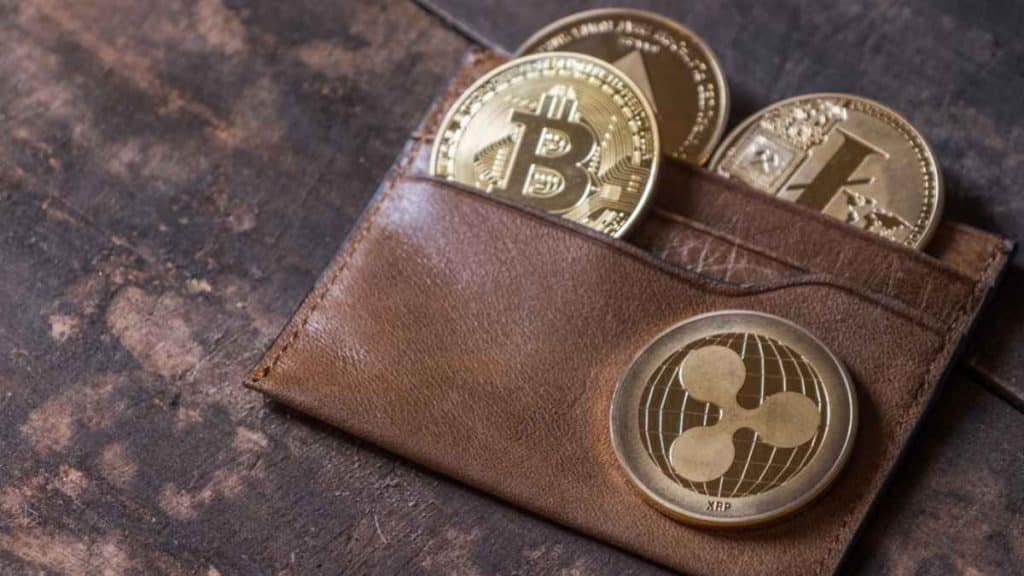When you own Bitcoins, you must have a space to store them. However, you don’t necessarily have to own the space where you hold your Cryptocurrencies.
Bitcoin wallets help you maintain security for your digital assets. It is beneficial when you’re making futuristic investments.
For example, if you take a look at the chainlink price prediction, you’ll see profitable future chances for this token. In such cases, you can HODL your digital token in a secured wallet.
However, with various options, selecting the best wallet option for your Bitcoins might be challenging.
In this article, we shall talk about all related topics on Bitcoin wallets to help readers understand the idea behind each type of wallet to get the best for themselves.
What Is A Bitcoin Wallet?
Similar to a typical wallet, a Cryptocurrency wallet—also known as a Bitcoin wallet or Crypto wallet—holds evidence of your digital money rather than paper money.
A Bitcoin wallet gives digital signatures approving each transaction. In addition, it contains the public and private keys necessary to purchase Bitcoin.
These digital wallets might take the form of a hardware device, software on an app or website, or a service provided by Cryptocurrency exchanges.
To trade or use your Cryptocurrency, you must maintain the safety and security of the private key that enables you to open your Crypto wallet.
What Are The Types Of Bitcoin Wallets Available?
This is the most important question to ask to decide which wallet you must get.
Wallet software and hardware come in a wide variety. However, they may be broadly divided into two categories: hot and cold wallets. Security levels, accessibility, and other characteristics differ between these two types.
Hot Storage
A hot wallet is also known as a software wallet. You may use a computer or smartphone to access this kind of digital storage. Their access to the interment makes them less secure than that of a cold wallet.
Some exchanges provide you the option of keeping your Cryptocurrency on the exchange while also giving you access to a separate hot wallet. Instead of keeping your coins in your exchange account, use a hot wallet.
To complete more transactions or cash out your position, these wallets can make it straightforward to transfer bitcoin back to the exchange. Furthermore, a lot of them are free.
Desktop Wallets
Desktop wallets are software programs that operate on your PC and keep all of your Cryptocurrencies there. The benefit of a desktop wallet is that you have total control over your money.
Examples: Exodus, Atomic, Electrum, Yeti Cold.
Mobile Wallets
Mobile wallets are smartphone applications that help you manage and store your Bitcoin assets. Mobile wallets for iOS and Android operating systems are the most practical for in-person transactions and using QR codes to make speedy payments.
Examples: Rainbow, Trust Wallet, MetaMask, Edge.
Cold Storage
A cold Bitcoin wallet is a physical device that holds your bitcoin offline. It is also known as a hardware wallet.
You can defend yourself against online attacks and hackers by taking your assets offline, but you also face the danger of losing your holdings.
Since there is no backup for this type of storage, if you misplace your wallet, you also lose access to your possessions. A cold wallet may cost up to 165 GBP. (though there are cheaper options).
You can escape the chances of hacking when using a cold wallet for your Bitcoins.
Alert: Avoid buying a used hardware wallet. Second-hand wallets can have altered algorithms that make them more susceptible to hacking. Instead, get your hardware wallet straight from the manufacturer.
Some of the top hardware Bitcoin wallets are as follows:
- Ledger Nano X.
- Trezor Model One.
- SafePal S1.
- KeepKey.
What Should You Choose, Then?
Both types of wallets are typically seen to be safer than keeping Cryptocurrency on the exchange where you bought it. But as with any investment plan, there are numerous variables to consider when figuring out which is best for you.
It’s probably alright to leave the money on the exchange for an investor holding a few hundred dollars on a significant exchange like Coinbase.
The added protection of a wallet may provide investors holding thousands of dollars worth of Cryptocurrency with the assurance of not losing their assets.
